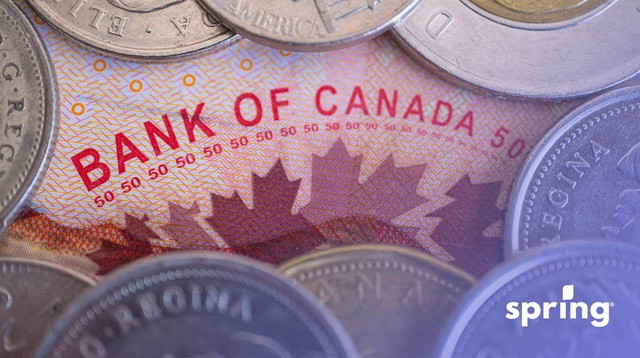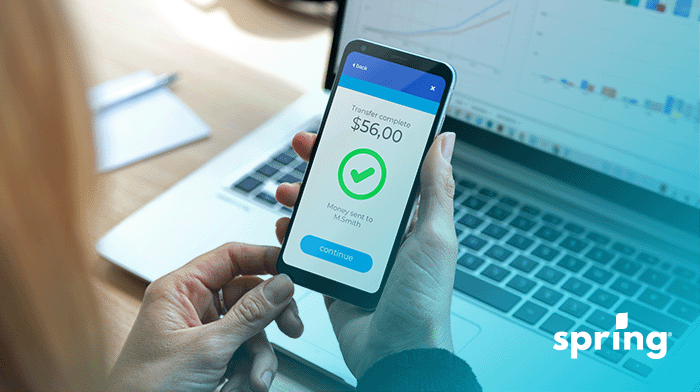The good news, however, is that bad credit isn’t the barrier to home ownership many think it is. You might not get an ideal mortgage rate or it might take you a little longer to get approved, but it’s entirely possible to get qualified and buy a home with a bad credit mortgage in Canada.
That’s good news for the millions of Canadians who have sub-par credit (or even no credit history at all) and who dream of one day owning their own home. If you’re in the same boat and wondering how you can achieve your dreams of home ownership, keep reading. We’ve gathered everything you need to know about getting qualified for a mortgage (and buying a home) with bad credit in Canada.
What you need to buy a home in Canada
To better understand how you can get a mortgage with bad credit, you first need to understand the basics of buying a home in this country—everything from down payments to stress tests to how lenders determine your mortgage eligibility. Each piece of the puzzle is impacted in different ways by having bad credit.
Down payment
The first major hurdle to buying a home in Canada is having a large enough down payment. Of particular note is the fact your down payment cannot be borrowed—it needs to be from funds you have, or funds that will come from the sale of another property. The amount you need will vary depending on the purchase price of the home you’d like to buy.
For a home under $500,000 you’ll need a 5% down payment. For homes between $500,000 and $999,999 you’ll need a 5% down payment for the first $500,000 and 10% on the remaining amount. Lastly, for homes over $1,000,000 you’ll need a 20% down payment.
So if you’re trying to buy a home for $900,000, you’ll need a down payment of $65,000 (5% on the first $500,000 is $25,000 and 10% on the remaining $400,000 is $40,000). Additionally, if your down payment is less than 20% of the purchase price, you’ll also be required to buy mortgage loan insurance through your lender. This protects the lender in the event you’re unable to make your payments.
If you have bad credit, you may not be approved for the mortgage amount you think you’ll need. In which case, you’ll need a larger down payment to cover the difference.
Mortgage approval
Your down payment is only one piece of the home ownership puzzle. Your mortgage will combine with your down payment to give you the total funds needed to purchase a home. When considering your mortgage application, lenders are trying to determine not just how risky you are but also how much you can afford.
The main factors they’ll take into account are your income, credit score, and existing debts. Sometimes they’ll also consider your estimated yearly housing costs, for instance heating and property taxes. If you have considerable debts, for instance, this will lower the size of mortgage that lenders will offer you, purely based on the size of monthly mortgage payments they think you can safely afford alongside your other debts.
If you have bad credit, be prepared for many lenders to decline your mortgage requests or not offer the amount you feel you’ll need.
Stress test
When federally regulated lenders—such as banks and credit unions—are considering your application for a mortgage, they’ll also perform what’s called a “stress test”. This means that when they’re determining what you can afford to pay monthly or biweekly in mortgage payments, they’ll use a significantly higher interest rate than what they might actually offer you. In other words, they can make sure you can make your payments by seeing if you can make them with far higher interest rates.
The stress test rate will be whichever is higher: either 5.25% or two percentage points higher than the lender’s interest rate for you. For example, let’s say a lender is considering approving you for a mortgage at an interest rate of 4.35%. They’ll actually “test” your ability to pay the mortgage at 6.35% instead.

What’s a bad credit score in Canada?
Now that you’re up to speed on the basics of buying a home in Canada, you need to understand how a low credit score might impact qualifying for a mortgage.
In Canada, credit scores range from 300 to 900 points. Anything above 700 is widely considered to be good credit, while anything under 650 is considered fair or poor credit (commonly considered to be bad credit).
Your credit report is tabulated by the two credit bureaus in Canada, TransUnion and Equifax. They use a range of factors to determine your credit score on an ongoing basis, including whether you pay your bills on time and how much debt you have.
If you don’t know what your credit score is, you can check it for free with sites like Borrowell.
How to get approved for a mortgage with bad credit
If you do have bad credit or less-than-ideal credit, have no fear. It’s still entirely possible to get approved for a mortgage. It might not be easy but it’s not impossible either. Your credit history is only one factor that mortgage lenders use to determine three things:
- Whether they’ll approve you for a mortgage.
- If they are, the amount of mortgage they’re willing to approve you for.
- What your interest rate will be.
If you have bad credit, be forewarned, you might struggle to get approved for a mortgage with a major bank or credit union. While there’s no minimum credit score in Canada to get approved for a mortgage, anything under 650 means you’ll face some challenges. If you do find a bad credit mortgage lender that’s willing to approve you, they might not offer as much as you need. They also might apply a higher-than-average interest rate.
If you’re struggling to get approved for a mortgage because of your bad credit history, here’s a few options you can consider looking into.
Get a joint mortgage
One of the best ways to get a mortgage if you have bad credit is by signing on the dotted line with someone else. This is commonly called a joint mortgage. It means you’ll be sharing ownership of a home and be equally responsible for mortgage payments.
While it isn’t a viable option for everyone, a joint mortgage with one bad credit borrower and one good credit borrower has a much greater chance of being approved. You’ll also be offered a higher mortgage amount and get a better interest rate than if you applied on your own.
Even if you have someone you trust in your life who is willing to partner with you on a mortgage, make sure you consider some of the risks. For instance, the relationship between you and the other person may turn sour at some point in the future, which can cause issues. Or the other person may want out of the mortgage entirely, which means you have to buy them out or sell the property to give them their share of equity.
Consider private lenders
Banks and credit unions aren’t the only mortgage lenders in Canada. There are plenty of private lenders available as well, many of whom specialize in helping those with bad credit secure loans for cars, mortgages, and more. In fact, if you have bad credit, a private lender may be your only choice as a mortgage provider.
The mortgage rates offered to you by private lenders on a bad credit loan will be considerably higher than those offered by the major banks and credit unions. However, private lenders that are regulated provincially rather than federally aren’t required to use a stress test on mortgage applicants. So if you’ve already failed the stress test on an application with a traditional mortgage lender, a private lender might be a good option to consider.
Getting a mortgage through a private lender can also be an effective short-term way to help rebuild your credit. If you can stomach the higher interest rates for a few years while making all of your mortgage payments on time, you might rebuild your credit enough to qualify for a mortgage with a major bank or credit union once it’s time for your renewal.
Improve your credit score
If all else fails and you still can’t get approved for the mortgage you need, don’t despair. Your bad credit rating isn’t carved in stone and you can definitely turn it around. The two biggest factors that determine your credit score are your payment history and how much you already owe.
To turn around your credit score, start by reassessing your spending habits and making a new budget. Commit to paying every bill on time every time, no matter what. Don’t miss or make any late payments. Additionally, make a plan to pay down your existing debts as fast as possible. If you need to cut back on things like entertainment, so be it. Tackle high-interest loans or credit cards first, then move on to lower-interest debts.
Doing this will improve your chances of being approved for a mortgage in two ways. First, you’re improving your credit score, which makes you less risky in the eyes of lenders and therefore more likely to be approved. And second, you’re lowering your monthly costs, which increases how much you can afford to pay in mortgage payments.
Save for a larger down payment
Another longer-term option is to keep saving for a larger down payment. This isn’t always easy but it can go a long way to making home ownership a reality if you have bad credit.
This is especially true if you’re looking to buy a smaller home in an area that isn’t experiencing runaway housing costs. Remember the down payment rules we covered earlier? You only need $25,000 as a down payment for the purchase price of $500,000 but if you can save more beyond that for a larger down payment you’ll lower the amount you need to borrow in a mortgage.
Be aware of bad credit loans promising guaranteed approval
There are a handful of lenders in Canada that promise guaranteed approval for bad credit loans. These lenders are known for their predatory behaviour and are best avoided entirely. Be careful about signing any paperwork from a lender offering guaranteed approval unless you fully understand what you’re committing to.
These lenders usually charge you high upfront fees and often require you to put down collateral, such as your vehicle. If you miss a payment on the loan, the lender can then take your collateral.
Additionally, bad credit loans with guaranteed approval tend to have the highest interest rates around. These interest rates can be so high, in fact, it becomes nearly impossible to pay down the primary loan amount and you get locked into an endless cycle of debt.
Worst of all, they don’t always report your payments to the credit bureaus. This means the hard work you’re doing of paying these high-interest loans back isn’t even helping improve your credit score.
What’s the easiest bank to get a mortgage with in Canada?
If you’re looking for an easy path to mortgage approval in Canada, you won’t find one if you have bad credit. The vast majority of mortgages in this country are done through the major banks—CIBC, CMO, RBC, TD, Scotiabank, and National Bank—and they all essentially apply the same rules and requirements to all mortgage applicants.
If you have a credit rating below 650, you’ll probably find it difficult to get approved for a mortgage with a bank or credit union in Canada. As an alternative, you can use a mortgage broker to connect you with private lenders, many of which won’t require you to pass the same stress test applied by the banks.

Can you buy a house with bad credit?
The dream of buying a single-detached house has become a national pastime in Canada. It’s also getting harder and harder to realize, even if you have excellent credit. Skyrocketing housing prices across the country have made home ownership a tall order, let alone the purchase of a single-detached house.
If you’re trying to buy a detached house with a bad credit mortgage, you’ll likely struggle.
In the Vancouver region, for instance, the average price of a detached house is well over $2,000,000. That means you’ll need a minimum down payment of more than $400,000. In the Greater Toronto Area, the average detached house price is over $1.6 million, which would require more than a $320,000 down payment.
Numbers like these put buying a detached house well out of reach for most Canadians, regardless of their credit history. It’s no surprise then, that condos and townhomes are in such demand, as they’re significantly more affordable than detached houses.
That being said, there’s a wide variance in detached house prices across the country. If you’re willing and able to move to a smaller town that’s far from Canada’s major cities, you can find detached houses for more reasonable prices.
What about a Bad Credit Mortgage with No Down Payment?
This can be much trickier. This is because getting a no-down payment mortgage can be hard, even with food credit. In order to get a mortgage, you need some sort of down payment, and the minimum is 5%. That said, you’re able to borrow the down payment, but it will cut into the funds you have available for the mortgage as well as impact your credit score.
Personal loans are one of the most difficult kinds of loans to get because the lender has the most risk. Plus, not only are you taking out the loan, the reason for the loan is to obtain a mortgage which is even more debt. Not all lenders will allow this, so it’s important to do your research before you attempt it.
How to get a mortgage with bad credit in your province
Getting approved for a mortgage is more or less the same process across the country. It doesn’t matter if you’re trying to get a mortgage in Ontario or Alberta, most of the same rules apply. Lenders and banks will look at the same information (your income, debts, and credit rating) and make their assessments based on how much they think you can afford.
The rules around down payments are also identical across the country. So if you’re trying to buy a $600,000 home in British Columbia you’ll need the exact same down payment as if you’re trying to buy a $600,000 home in Manitoba or Saskatchewan.
There are, however, some subtle differences in buying a home depending on your province. These are mostly due to provinces trying to reign in rising housing costs and make home ownership more affordable. For example, the BC government introduced a “cooling off” period that allows prospective home buyers more time to change their minds and walk away from any offer they make on a property. Other provinces, like Nova Scotia and Ontario, have increased speculation taxes on non-residents in an attempt to make more homes available to locals.
These province-by-province changes to home ownership are continually changing so before you take the plunge, make sure you get up to speed on the specific rules in your province.
A Mortgage with a 600 Credit Score
Getting a mortgage with a 600 credit score is completely doable as long as you don’t need CMHC insurance. In order to get a mortgage with CMHC insurance, you need a credit score of at least 600.
Mortgage with Large Deposit but No Job
While it’s a bit more unlikely, it is doable. You just have to be able to prove to the lender how you’re going to be able to make your payments.
High-Risk Mortgage Lenders
HIgh-Risk Mortgage lenders are alternative lenders that are able to help you get the loan that you’re looking for even if you have bad credit. If you aren’t approved by a traditional lender, then that may be the best option for you. In Canada, some of the most well-known choices are:
- Alpine Credits
- Prudent Financial
- Clover Mortgage
- Canandalend
- Guardian Financing








